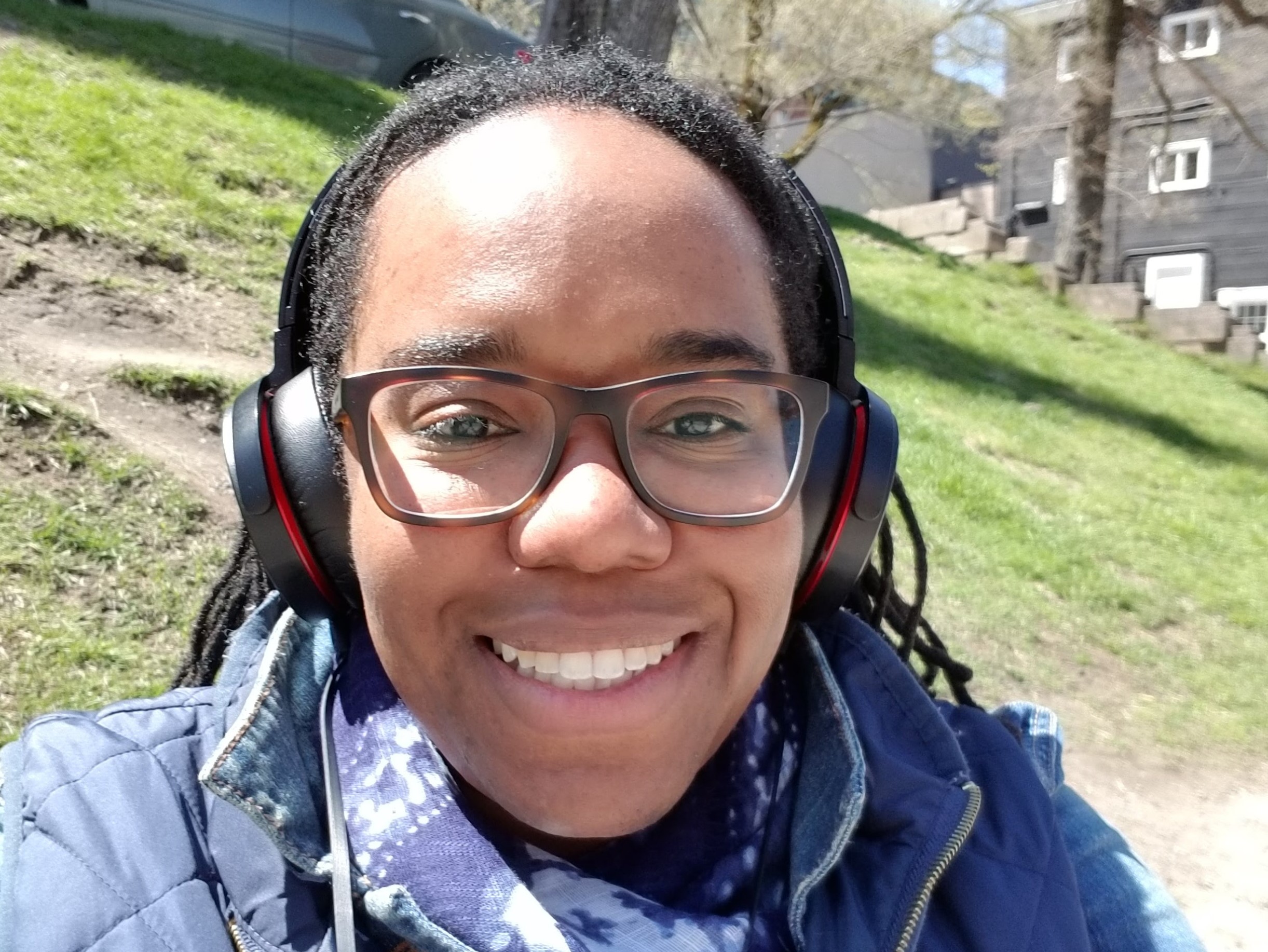Alumni Profile: Dr. Cheryl Thompson (ComCult MA '07)
Most graduate students can talk about their projects, but part of knowing who you are as a scholar is also understanding what your fields are, and what conversations you can have with others in those fields.
Current Work
My academic trajectory is different from others because I’ve changed projects along the way, and allowed the work to take me where it needs to take me. My MA research in ComCult was on authenticity and Canadian hip-hop; I wanted to understand how Canadian artists authenticate themselves as Canadian, and how that speaks to their local communities across the country. I have always done freelance writing here and there, and in the interim between my MA and PhD, I decided I was more interested in black beauty culture than the hip-hop work I had done previously, and so I started writing about it—not academically, just popular writing—and that became my focus in my PhD.
When I was at McGill, I applied to a fellowship offered by the McCord Museum (external link, opens in new window) that funded a year of archival research, to study the museum’s images of black and white women in 19th century Montreal. The museum was also offering another award for the summer that had to be for a different project. At that time in Montreal, there were incidences of blackface happening at various schools around the city, and I had already started reading literature on blackface as a side project to my PhD research; I ended up winning both the summer and yearlong fellowships at the McCord Museum for two different research projects. By the time I reached the end of my PhD, I already knew that my research on beauty culture was going to be a book, and I knew I wanted to stay in academia and take the postdoc route. I applied for the standard SSHRC postdoc three times, and each time I didn’t receive it, I kept researching the project on blackface in Canada; by the time I received the Banting Postdoctoral Fellowship at the University of Toronto, this was a project that I had been working on for four years.
This is to say that my research today is a continuation of this work from the Banting fellowship, which has ended up being a much larger project than when I first envisioned it. Through this evolution, I have become a type of scholar than I didn’t even know I would become—my research is not only on theatre and performance, but on critical race, visual culture, and community and nation building activities.
Reflections on ComCult
I enjoyed my defense, and I think that’s what motivated me to do my PhD; I liked the idea that I had produced this project, and now I had to explain my thinking and why I did it. I’m very process oriented and what I took away most from my MA was the understanding that your ideas can be rough in the beginning but when you hear comments from people who are more learned than you, you suddenly realize you have made a contribution. It is that process from idea to contribution that I really like; I don’t see it as a stressful situation.
If you are an MA student who has no aspirations to go onto your PhD, this program will prepare you with theory and practice to have a sense of the cultural landscape outside the institution. My advice to MA students wanting to pursue a PhD is to understand that a PhD is a different type of commitment; it has less to do with the project (which will change) and more to do with you, the institution, your supervisor, and your community. Often times when people decide to do a PhD, they only think of the work they want to do and not of these three things. Finally, the advice I would give to a PhD student graduating from ComCult is to understand that nobody owes you anything—you have to go out there and get it yourself. Most graduate students can talk about their projects, but part of knowing who you are as a scholar is also understanding what your fields are, and what conversations you can have with others in those fields, in ways that have nothing to do with your project.
It can also be daunting to come out of an interdisciplinary program like ComCult and see so many discipline specific jobs on the market. For people applying to university departments, look for those postings that are cross-appointed between two or three more faculty, as that’s a sign that being interdisciplinary is a good thing. The reality is that how you position yourself post-PhD will determine the job that you get; applying for academic jobs is a stressful process, and you want to make sure that it’s something that you really want but also something that you’ll be okay with if you don’t get it. I think that’s the take-away—not getting a job is not an indication that you’re not a good scholar, and it does not diminish who you are as a person.
Recommended Reading
I still go back and read bell hooks and in particular, her 1992 book, Black Looks: Race and Representation (external link, opens in new window) . I absolutely love that book because while she talks about deep, complex topics, the language and tone is accessible because it interweaves her own personal stories into the subjects she talks about. I think that’s a style I have emulated when I write, maybe without consciously realizing it, because I am always putting the personal in in a way that doesn’t seem like it’s about me; I’m adding to the story. When I read that book, I really appreciate how hooks took her lived experience and she put it into something—that’s the style I model when I’m writing.
